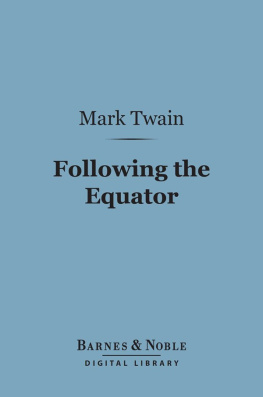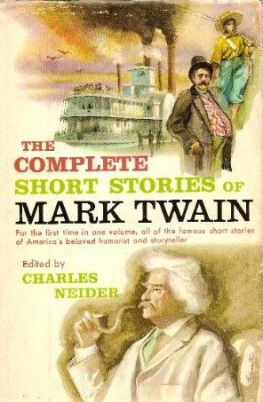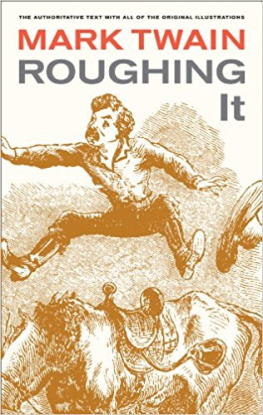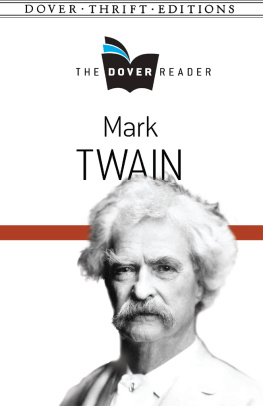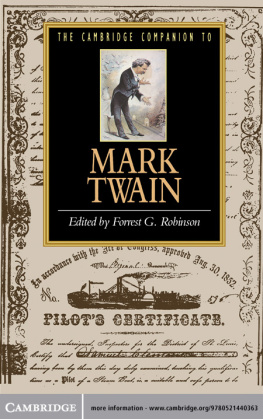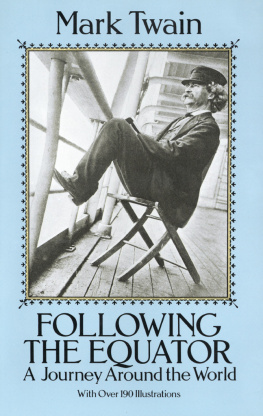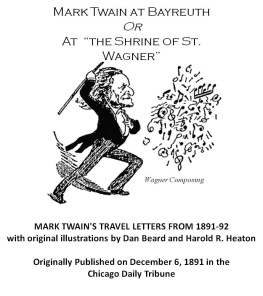Mark Twain - Following the Equator
Here you can read online Mark Twain - Following the Equator full text of the book (entire story) in english for free. Download pdf and epub, get meaning, cover and reviews about this ebook. publisher: BarnesNoble, genre: Detective and thriller. Description of the work, (preface) as well as reviews are available. Best literature library LitArk.com created for fans of good reading and offers a wide selection of genres:
Romance novel
Science fiction
Adventure
Detective
Science
History
Home and family
Prose
Art
Politics
Computer
Non-fiction
Religion
Business
Children
Humor
Choose a favorite category and find really read worthwhile books. Enjoy immersion in the world of imagination, feel the emotions of the characters or learn something new for yourself, make an fascinating discovery.
- Book:Following the Equator
- Author:
- Publisher:BarnesNoble
- Genre:
- Rating:4 / 5
- Favourites:Add to favourites
- Your mark:
- 80
- 1
- 2
- 3
- 4
- 5
Following the Equator: summary, description and annotation
We offer to read an annotation, description, summary or preface (depends on what the author of the book "Following the Equator" wrote himself). If you haven't found the necessary information about the book — write in the comments, we will try to find it.
Following the Equator — read online for free the complete book (whole text) full work
Below is the text of the book, divided by pages. System saving the place of the last page read, allows you to conveniently read the book "Following the Equator" online for free, without having to search again every time where you left off. Put a bookmark, and you can go to the page where you finished reading at any time.
Font size:
Interval:
Bookmark:
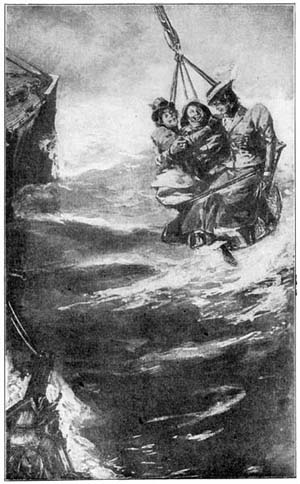
Protecting the ladies
A Journey Around the World
MARK TWAIN
(Samuel L. Clemens)
Introduction by Linda Diane Schlafer Ph.D.

Introduction and Suggested Reading
2002 by Barnes & Noble, Inc.
This 2011 edition published by Barnes & Noble, Inc.
All rights reserved. No part of this publication may be reproduced, stored in a retrieval system, or transmitted, in any form or by any means, electronic, mechanical, photocopying, recording, or otherwise, without prior written permission from the publisher.
Barnes & Noble, Inc.
122 Fifth Avenue
New York, NY 10011
ISBN: 978-1-4114-3566-7
This books affectionately inscribed to my young friend Harry Rogers, with recognition of what he is, and apprehension of what he may become unless he form himself a little more closely upon the model of
T HE A UTHOR
THE PUDDNHEAD MAXIMS
T HESE WISDOMS ARE FOR THE LURING OF YOUTH TOWARD HIGH MORAL ALTITUDES. THE AUTHOR DID NOT GATHER THEM FROM PRACTICE, BUT FROM OBSERVATION. TO BE GOOD IS NOBLE; BUT TO SHOW OTHERS HOW TO BE GOOD IS NOBLER AND NO TROUBLE.
INTRODUCTION
S AMUEL Langhorne Clemens, or Mark Twain, as he was better known, was born on November 30, 1835 in Florida, Missouri. He died of heart trouble on April 21, 1910 in Redding, Connecticut. Though the heart trouble was a physical condition, it was also a metaphorical cause of death as by then, his wife, two of his daughters, his closest male friend, and numerous other friends and associates had all died within the relatively recent past. Throughout much of his life, Twain had the energetic high spirits and the wit to cope, through his writing, not only with human foibles and idiosyncrasies, but with the evil he found rampant in the world. Nevertheless, he was increasingly overwhelmed by the malignant elements in his experience toward the end of his life. In his last major works, his characteristic humor does not counterbalance the bleakness and darkness of his vision.
Sam Clemens was the sixth child of John Marshall and Jane Lampton Clemens. His father ran a dry goods and grocery store, practiced law, engaged in land speculation, and involved himself in local politics after the familys move to Hannibal, Missouri when Sam was four years old. Though his father was not particularly successful at any of these enterprises, Sam acquired his fathers interest in entrepreneurial, legal, and political matters as well as a disposition for being engaged in multiple pursuits at the same time. At times, unfortunately, he seemed to have inherited his fathers penchant for investing in unsuccessful schemes. Sam also had a literary bent, a keen sense of the incongruous, great powers of observation, and an enduring wanderlust.
Hannibal seems to have been a good place for a boy to grow up. Sam was entranced by life along the Mississippi River, by its steamboats and barges, and by its colorful variety of human workers and passengers. He also loved the hills and woods surrounding the town, the opportunities for rafting, swimming and fishing, and the friends he had made. He absorbed the traits of the variety of characters that inhabited the town as well as the distinctive rhythms of their speech and mannerisms. Many features of the Hannibal landscape, including an island in the river and a nearby cave, contribute to the setting of his best-known novels, The Adventures of Tom Sawyer and The Adventures of Huckleberry Finn. Twain had a gift for rendering the human landscape in words.
Sam was eleven when his father died, and he immediately began contributing to the support of his family through various odd jobs. At age thirteen, he was apprenticed full time to a printer, later becoming the compositor. Thereafter, he became the contributing editor for his brother Orions newspaper, the Hannibal Journal. At this time, good local humor was coming into its own in American writing, and Sam found he had a natural affinity for the genre. One reliable source of humor was found in the clash of cultures between the supposedly more established and refined Eastern states and the rough and ready mentality of the West. Although the first wave of westward pioneers had long since reached the West Coast, the frontier spirit remained identified with specific groups of people that became icons of an American mythology. Miners, cowboys, rivermen, loggers, carpetbaggers, and desperados were among these groups, and the Midwest was a good meeting place for representatives from both ends of the country. Sam found he could make anyone or anything into a funny story, and was soon contributing bit pieces to other newspapers as well as to his brothers.
While still in his teens, Sam became restless and went on the road as an itinerant printer. His travels gave him fresh material to work with and helped to develop his strong ability to closely observe all that went on around him as well as to record his experiences in entertaining and informative sketches, stories, and essays. He began to develop a reputation as a humorist, an identity that followed him the rest of his life, sometimes even when he would have preferred to be taken more seriously. For the next few years, Sam alternated between traveling and writing, and helping with Orions newspaper, now located in Keokuk, Iowa. In 1857, Sam conceived a plan to seek his fortune in South America, but on his way to New Orleans he met a steamboat captain, Horace Bixby, who took him on as a cub riverboat pilot and taught him until he acquired his own license. The river, always a source of entertainment and interest for him, became a prevailing metaphor for life in his writing as he came to know both its unchanging features and its inconstancies in a more intimate way.
From the beginning, Sam Clemens liked to use pseudonyms when he submitted his writing to newspapers and magazines. Some of his early aliases were Josh, S.L.C., Quentin Curtius Snodgrass, and Thomas Jefferson Snodgrass. When he first identified himself as Mark Twain, however, the name stuck, and most of his major work was hence written under this pseudonym. It is appropriate that Mark Twain is actually a nautical term of measurement since river life was a focal point of Sam Clemens imaginative life as well as of his work and daily existence. Since the river was always shifting and changing, frequent depth measurements were taken when a riverboat was underway. Mark Twain meant two fathoms deep, and represented about the most shallow that the river could be at a given point (around twelve feet deep) and still be safely navigated. Even as he traveled up and down the river, Sam kept writing and publishing his pieces.
This enjoyable style of life, which Twain always spoke of later with special warmth and enthusiasm, was ended by the Civil War, when the Mississippi River was used as an invasion route by the Union army and both business and pleasure travel were effectively shut down. Twain, as he was beginning to be known by then, served very briefly with the Confederate troops but soon withdrew to again join his brother Orion, who was now in Nevada. Orion had a government position in the Nevada territory, and Twain decided to try prospecting for gold and silver. He was no more successful than most of the panners, but he learned a lot about life in the Southwest which, characteristically, he later turned into one of his well-known travel book called Roughing It. In 1862, Twain joined the staff of the Virginia City Territorial Enterprise, a paper to which he had already begun submitting his work. He wrote comical reports of the prospecting venture as well as more conventional sketches.
Next pageFont size:
Interval:
Bookmark:
Similar books «Following the Equator»
Look at similar books to Following the Equator. We have selected literature similar in name and meaning in the hope of providing readers with more options to find new, interesting, not yet read works.
Discussion, reviews of the book Following the Equator and just readers' own opinions. Leave your comments, write what you think about the work, its meaning or the main characters. Specify what exactly you liked and what you didn't like, and why you think so.

